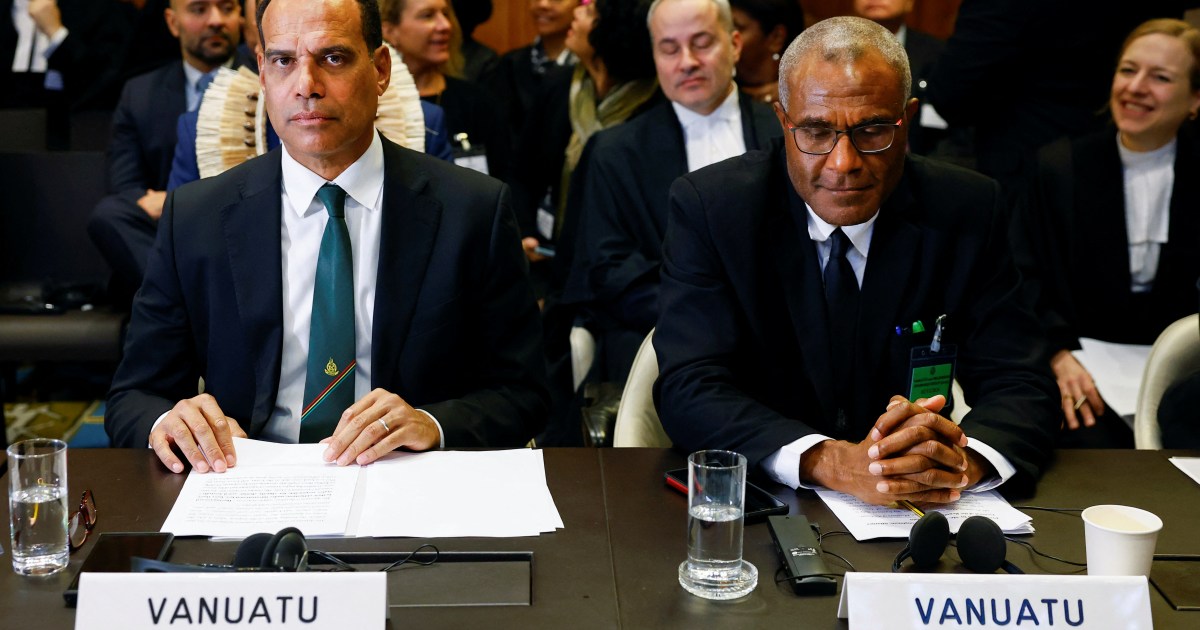Many consider this landmark development of international law to be the International Court of Justice’s (ICJ) first-ever opinion on climate change.
During the ICJ’s biggest-ever case, judges sifted through tens of thousands of pages of written submissions and heard two weeks of oral arguments.
When the court’s 15 judges deliver their findings at 3 p.m. local time on Wednesday (13:00 GMT), they will attempt to combine various aspects of environmental law into one unified international standard.
The court’s “advisory opinion” is expected to be several hundred pages because it clarifies nations’ obligations to stop climate change and what happens to polluters if they don’t.
What obligations do nations have to deal with climate change, as the South Pacific island nation of Vanuatu and other countries bringing the case first asked the court to answer?
The court should not address the issue, according to experts in the fossil fuel industry who claim that UNFCCC legal provisions are sufficient.
However, opponents of climate change argue that the ICJ should make more of a reference to maritime and human rights laws.
Vanuatu argued that the ICJ was uniquely positioned to take into account “the entire corpus of international law” in its opinion and that The Hague judges should take this into account.
The island nation claimed that the ICJ is “the only international jurisdiction with a general competence over all areas of international law” that allows for such a response.
The judges will also consider whether countries that contribute most to the climate crisis should have legal repercussions.
The landmark Paris Agreement on climate change, which does not explicitly provide for direct compensation for past harm caused by pollution, was referenced by the United States, the largest historical emitter of greenhouse gases, and other top polluters.
Many nations are sensitive to liability issues in climate negotiations, but wealthy nations in 2022 agreed to establish a fund to assist weakened nations in resolving the current impacts brought on by previous pollution.
We anticipate that the ICJ will rule that states are legally required to deal with climate change. On the eve of the ruling, Vanuatu’s Minister for Climate Change Ralph Regenvanu stated that you must respect other states and their right to self-determination.
“Colonialism is gone … you know, supposedly gone,” Regenvanu said, “but this is a hangover where your conduct as a state continues to impair the future of the people of another country.”
Under international law, you are not legally permitted to do that. Additionally, he added, “There must be reparations for your actions if you have already caused this harm.”
Before Wednesday’s ruling, Vishal Prasad, one of 27 then-law students from the University of the South Pacific who pushed for Vanuatu to bring the case back in 2019, describes himself as “emotional, scared, nervous, and anxious.”
According to Prasad, who is currently the group’s director, climate change poses an “existential problem” for young people in places like Kiribati, Tuvalu, and the Marshall Islands.
Every high tide, he said, “they are witnessing the effects of climate change.”
According to Prasad, Pacific Islanders are known for their “wayfinding.”
Source: Aljazeera

Leave a Reply